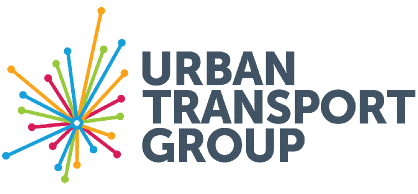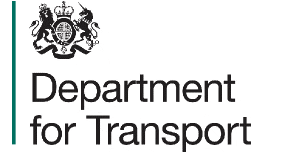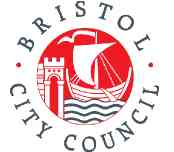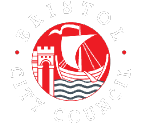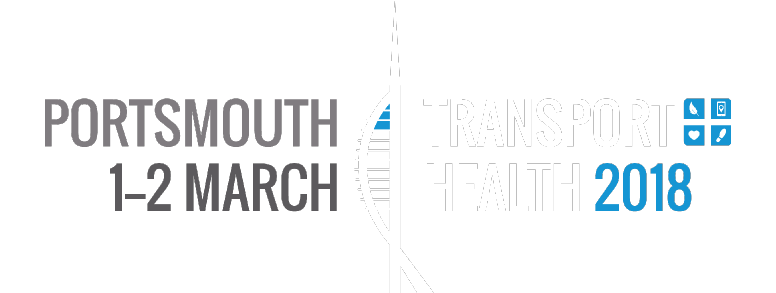Speed learning: round table discussionsSpeed Learning provides a fast-moving discussion platform for knowledge-sharing and helps teams to network. The 30-plus case studies will be presented simultaneously at ‘bar tables’ marked by numbered balloons, in 12 minute sessions (11 minutes for presentation and interactive discussion, and 1 minute for changing tables). The case studies will consist of short presentations followed by discussion. A horn will be sounded when it is time to change to another table. |
||
Sustainable Transport Transition Year Projects |
||
 |
 |
 |
||||
Walk ToWalk To, a partnership approach to increase walking, is being delivered by a partnership of sixteen local authorities across England, led by Birmingham City Council. Working with national charity Living Streets and Modeshift, the project is focusing on increasing walking rates with schools and workplaces in target locations, in order to tackle congestion and improve access to education and employment. The project is funded through a grant of £2.48m from Department for Transport as part of Sustainable Travel Transition Year funding. Chris Rushbrook, Head of Delivery, Living Streets
|
Pushing Ahead from A to Better in NorfolkThe Pushing Ahead project is built on existing partnerships and successful active travel initiatives to maximise the use of current and planned investment in infrastructure for walking and cycling. The project focuses on the growth areas in Norwich and Great Yarmouth by:
Jeremy Wiggin, Travel Development Team Manager, and Dr Andrew Hutcheson, Countryside Manager, Trails and Projects |
Go Smarter Active Travel eventsAs a successful STTYF programme, Go Smarter is challenging workplaces and their employees to make achievable changes to their travel. It is delivering a wide range of successful and popular tailored behaviour change activities designed to get more people to think twice about using their car and instead opt for something healthier, cheaper and greener. Go Smarter’s STTYF activity covers seven local Authorities under the North East Combined Authority: County Durham, Gateshead, Newcastle, North Tyneside, Northumberland, South Tyneside and Sunderland. Emma Allan, Go Smarter Programme, AECOM & Hannah Graham, Transport Planner, SYSTRA |
||||
 |
 |
 |
||||
Air Quality Walking ProjectThe aim of the Air Quality Walking Project is to upgrade the data feeding into the online journey planner within the Choose How You Move website to eliminate gaps in the mapping of footpaths and cycle routes, so as to encourage an increase in walking and cycling journeys in Leicester. The Choose How You Move (CHYM) website, launched in January 2014, is a one stop shop for travel information in Leicester City and Leicestershire County. It incorporates a journey planner that presents multi-modal options starting with the most active or sustainable travel options. Sara Coy, Active Travel Training Coordinator, Leicester City Council |
Streamlined smarter choices deliveryJacobs is working in partnership with Cheshire East Council to overcome access barriers to employment and colleges. This Sustainable Travel Transition Year programme focuses on engaging key employers and colleges to support significant wider economic growth aspirations in Crewe linked to a future HS2 Hub. A key theme of the programme is addressing ‘access’ barriers for young people in Crewe, some of whom are living within highly deprived areas. This programme is utilising tried and tested techniques for smarter travel however these measures are being streamlined to meet the challenge of delivering within the context of reduced STTY timescales and budgets. Traditional smarter choices techniques including travel planning, PTP, cycle challenge, cycle loan scheme, marketing and communications are being employed with a strong focus on practical delivery of outputs/outcomes within the 9 month programme and achieving legacy.
|
My JourneyHampshire County Council, Portsmouth City Council and Southampton City Council are in their fifth year of promoting sustainable travel through the My Journey brand. My Journey brand awareness has gone from zero to over 50% in some parts of the county. This has led to over half a million people visiting the website trying to find out how they can change their travel behaviour. These numbers are growing year on year which indicates a clear demand for the service and a desire for change. Vicky Doyle, Marketing Coordination Manager, Local Sustainable Transport Fund, Hampshire County Council, Portsmouth City Council, Southampton City Council, Solent Transport and Surrey County Council
|
||||
Activity for wellbeing and success |
||
 |
 |
 |
||||
Get Active: Kingston exercise referral schemeThe Kingston Get Active exercise referral programme has successfully been helping those who live, work and study in Kingston to become more physically active since 2008. As an extension to the current range of physical activity opportunities provided by the referral programme, teams from Kingston’s public health department and sustainable travel joined forces to develop an innovative solution to support the wider active travel agenda to patients referred to the programme through a cycling for health project. By utilising the expertise and resources from both teams, patients can feel confident that they are receiving the proper care and training by qualified and competent staff in a safe environment. Helen Millier, Senior Cycling Instructor & Coordinator, Sustainable Transport, Kingston & Sutton Shared Environment Service, Royal Borough of Kingston Upon Thames
|
POSITIVE SPINLaunched in July 2015, Positive Spin is a ground-breaking project funded by Lambeth Council which looks to enable people with dementia to cycle, and assessed the role learning and practising cycling has in acquiring new skills. A team of four Cycle Training UK cycling instructors (including a psychotherapist experienced in developing therapeutic interventions for people with dementia) delivers the sessions. Initially an 8-week programme at Clapham Common, Positive Spin rolled out in Lambeth and Hackney in Spring 2016, and includes ‘Cycle’ shows to care homes in many London boroughs. We are planning to offer this programme as a social franchise so people across the country can enjoy the benefits. Cycling is a skill which is learnt and carried out through ‘procedural’ memory, which is often unimpaired in people with a diagnosis of dementia. David Dansky, Head of Training & Development, Cycle Training UK |
CYCLING FOR BETTER PHYSICAL AND MENTAL HEALTHUK case study and end-user data insights from Love to Ride, a global social business and experts in cycling behaviour change. Since 2002, they have created and continue to develop the best online platform and local programmes, using the latest GPS app technology and using a fun, engaging and accessible brand to generate high levels of interest. Love to Ride collect everyday cycle trip data, using this to help inform local planning departments on their infrastructure development projects. This data also helps determine behaviour change and health impacts and outcomes. This talk will develop insight using rich data from our UK and overseas projects. Data sets are collected at various points in the project life-cycle. Sam Robinson, General Manager, Love to Ride |
||||
 |
 |
 |
||||
BEYOND THE BICYCLE FOR DISABLED PEOPLEWhy are we not encouraging more disabled people to take up cycling? There is a myth that disabled people can’t or don’t cycle. This isn’t correct. According to TfL, in London alone 15% of disabled people sometimes use a cycle to get around, compared to 18% of non-disabled people. However, as our own research has revealed disabled people are still overwhelmingly likely to be seen by local authorities as non-cyclists (e.g. pedestrians or car drivers) than as cyclists (or even potential cyclists). Yet the health impact of more disabled people cycling could be huge. For example, when asked if their health had improved as a result of attending inclusive cycling sessions, 90% of our participants agreed, whilst a further 80% said it made up half of their weekly exercise. Given that disabled people are half as likely as non-disabled people to be active, it is clear that cycling can provide a form of regular exercise and active travel for those more likely to lead sedentary lifestyles. Cycling is non-weight bearing and therefore often easier than walking; it enables disabled people to get regular access to the outdoors and to connect with their community, and in turn reduces social isolation and improves mental wellbeing. Cycling can also support people’s recovery from episodes of ill-health (complementing rehabilitative medicine). Isabelle Clement, Director, Wheels for Wellbeing |
Cycling Without Age (CWA) in the UKCWA is an initiative started in Copenhagen by Ole Kassow: it gives the opportunity for volunteers to take elderly care-home patients on electric taxi bikes. After its initial success in Denmark, it has now been established in more than 25 countries around the world. The initiative has five Guiding Principles: Generosity, Slow Riding, Storytelling, Relationships, All Ages. |
TVP Travel: Maintaining a successful Business Travel NetworkSince its formation in 2009 the Business Travel Network at Thames Valley Park, Wokingham has become an exemplar model for successful business engagement and securing private sector investment in sustainable travel. Developed in partnership from across the public and private sectors, the network has delivered widespread multi-modal promotion and investment in targeted initiatives focussed on user need. A business case tool has been developed and applied to provide transparency over health, environmental and savings against set programmes of investment. |
||||
 |
 |
|||
Street Pockets: Reclaiming Street SpacesStreet Pockets are spaces for sitting, socialising with your neighbours, chatting with friends, playing, art, or just making your street greener and more active. They have been created by local residents converting one or two car parking spaces into a public space that the whole of the community can enjoy. Learn more about how Sustrans empowered local communities to improve the public space outside their front doors during Bristol’s year as Green Capital in 2015. In 2015, Sustrans supported local communities in Bristol to take action and reclaim street space, recruiting local champions and provide the training required to engage with their neighbours and set up Street Pockets in their streets Paola Spivach, Head of Design and Engineering England South, Sustrans |
Green Travel DistrictsGreen Travel Districts offer a vision of specific areas where there is a concentration of people living and working, to create an environment where people are put before cars, where residents, workers and visitors can safely walk, cycle or take public transport, and for districts with less congestion, less pollution, fewer accidents, and healthier, safer, more productive communities. Mark will outline how Green Travel Districts are being pioneered with Birmingham City Council, work with local stakeholders to promote sustainable active travel at key district centres around the city. Mark Nettleton, Director, Phil Jones Associates |
|||
Bikes, e-bikes and health |
||
 |
||||||
 |
 |
|||||
E-bike impacts on healthWhat do 11 UK pilot schemes tell us about the contribution of e-bikes to the health agenda? By studying the usage and impacts of 200 bikes in 11 diverse shared settings, the UK Department for Transport Shared Electric Bike Programme has provided important new information about the contribution of electric assist bikes to the drive to improve health. This presentation will provide highlights of the lessons learnt from user surveys, GPS tracking and project reports including: Antonia Roberts, BikePlus |
||||||
Comparing eBike and SmartBike sharingIn October 2016, Exeter saw the introduction of Co-Bikes on its streets. It was the first bike sharing scheme in the United Kingdom with a full fleet of electric bicycles by nextbike that can be recharged at any temperature and weather conditions in specially designed docks.Within the first few weeks we noticed the different patterns in usage of the eBikes (term that nextbike uses when referring to electric bicycles) and the SmartBikes (nextbike’s name for the normal bicycles). One of the main differences was the distance travelled by the bicycles. In a normal scheme, these varied between 1.5 – 2.5km per trip, whereas for Co-Bikes this distance stood at around 6km. This is 3-4 times longer than usual. Whilst this number can change over time, can we expect that journeys will be longer? Why? Among similarities we witness the importance of public transportation hubs such as train stations in the scheme. Is this yet another proof that bike sharing is an important part of customer final mile journey? Can this lead to a policy change for cities aiming to improve their cities for businesses? A case study exploring whether hybrid systems could increase the efficiency of bike sharing schemes in the United Kingdom Aivis Indans, nextbike UK |
||||||
 |
||
Pedal and pedelec usageOxonbikes is a public bike-sharing scheme in Oxford, originally setup in 2013 and now developed to provide 80 bikes over 15 locations. In June 2016 the existing automated pedal bike scheme was supplemented with 24 specialist ebikes (pedelecs), charged and managed from the same docking stations, creating the first hybrid pedal ebike scheme in the UK. The stations link the many health trust and university campus locations in the City, and the pedelecs have created new opportunities for travel that the pedal bikes could not support, in terms of trip distance and ease of effort. The data collected through the project has enabled a direct comparison of pedel and pedelec usage and its impact on the customer base, and this research has been key in better understanding the role of pedelecs in the shared transport field. Tim Caswell, Managing Director, Hourbike
|
||
Technology, transport & health |
||
 |
 |
 |
||||
Automated GIS-based tools for planning home to school transportA comparison of dedicated cloud based tools with system replacement. Although automated GIS map based routing tools for school transport have been available for over 15 years, hardly any UK local authorities have adopted them. This is because they have been far too expensive and too difficult to deploy; requiring that authorities totally replace their existing transport management systems. Kent County Council partnered with a European project named Send-To (Special Education Needs and Disabilities Transport Optimisation). The project aimed to provide a cloud-based automated focused routing tool. From this project has grown QRoutes, which is now available on a low cost subscription basis. Planners and Schedulers can pass lists of trips via a simpler file format and receive back the routed solution. Using QRoutes, Kent CC saved well almost £1.5m in costs associated with Special Education Needs pupil transport and are now applying it to their Mainstream School Transport provision. This talk considers the applicability of automated routing solutions to the UK school transport market and the new philosophy of providing focussed tools rather than replacement systems. |
Monitoring air quality and active travel impactsAn investigation into the long term benefits and unintended pitfalls of travel planning initiatives using the ten years of data collected through iTRACE, an online software suite used to monitor travel plans and collect actual travel behaviour. Authorities across the UK are working to promote an improvement in transport conditions for those living and working in their regions, delivering sustainable transport schemes and initiatives which address the key issues of congestion, public transport provision and convenient orbital movement. A significant number of these authorities, including those of West Yorkshire, Wigan, Brighton and Tyne & Wear, have used iTRACE as their monitoring tool, some since 2006. This talk will outline the data collection process, detail the information available for analysis and, through a combination of research on both national and local levels, explore what knowledge and conclusions can be drawn regarding some of the intended and unintended outcomes of Mobility Plans. The data collected through iTRACE is geo-coded and contains details of each commuters journey legs e.g. Walk 10 minutes to a bus stop, catch a bus for 10 minutes, meet a car-share partner and drive 15 minutes to my place of work. This data is also used to derive CO2, NOx and PM10 values for the non-active journey legs. The data will be displayed in a series of tables, charts and maps. Dan Blanchet, Commercial Manager, iBase Systems Ltd
|
An urban test-bed for new technologiesTransport for Greater Manchester has been taking the lead in the delivery of the necessary foundations for an Intelligent Mobility approach to technology exploitation in support of making public transport an attractive, legible and simple option for residents, workers and visitors. The aim is to combine improved access to public and private transport movement across our network with wider ‘big data’ product solutions. This will support mobility management through offering accurate, real-time and relevant alternatives on all elements of mobility, including that of journey planning. Greater Manchester is also in the early stages of implementing radical new mobility opportunities, including talking bus-stops, smart place-lighting and connected tram accessibility. Moving towards the implementation of a Mobility as a Service transport package, Greater Manchester is acting as an urban test-bed for new technologies to be trialled and implemented in an economically and socially complex city region. Clare Cornes, Transport Strategist, Transport for Greater Manchester |
||||
 |
 |
 |
||||
Gamification: engaging inactive users and encouraging active travelGamification and ‘changing up’ of incentives is required to increase travel behaviour change over time, otherwise it will plateau after a few weeks. This was realised from the Better Travel project, a behaviour change programme which utilised a mobile app and digital currency to encourage people to take less solo car journeys and use more sustainable, multi-modal and active forms of travel. It was implemented between May and September 2016, delivered by BetterPoints Ltd to Birmingham City Council’s sustainability team as part of the Transition Cities Programme. 74% of people (N=46) said that they had taken the car less as a result of the programme, and 63% said their awareness of green and sustainable travel had increased. Multi modal travel and expanding incentives across new transport models such as car clubs and bike hire is an area with great potential, but requires further development in terms of API integration into booking systems and intelligent, automated qualification of transport choices. Dan Gipple, CEO, Better Points
|
Cycling is essential for the success of Mobility as a Service (MaaS)The rise of Mobility as a Service (MaaS) has highlighted that it is highly focused on motor-driven modes of transport at the base of the concept. Nextbike believes that this is a wrong approach as cycling – especially bike sharing – can act as glue, bringing closer other modes of transport. Secondary research shows that cycling is an ideal final mile solution for most people. Our own research also confirms this, with around 20% of all rentals originating or ending at a transport hub such as train or bus station. We have teamed up with several MaaS providers, including MaaS Global (based in Helsinki, Finland) to promote cyclist as a viable and desirable mode of transport for people. By working together with such providers, we ensure that cycling is not neglected and is fully integrated in planning of such services. What we have to understand, however, the paradigm of competition is not healthy for the future of economy, and rather than 'compete for customers' we have to 'share the customers'. Through this, we allow customers to have more choice and convenience in planning their journeys, whilst at the same time attractine new customers. At nextbike, we believe that through MaaS services, we will also notice consumer behavior changes that will also benefit other transport providers. This talk will offer a real life case study of nextbike experience in the UK and elsewhere. Sebastian Schlebusch, Director, Nextbike UK |
Beat the StreetIntelligent Health delivers ‘Beat the Street’ with the aim of getting a whole community more physically active. Beat the Street turns the town into a real-life game where players register their walking and cycling journeys by tapping a smartcard on around 220 RFID readers called ‘Beat Boxes’ placed on lampposts around the town. In February 2016, Beat the Street was launched in Isleworth, sited in the London Borough of Hounslow in West London, and recently in September the game was re-launched across the whole of Hounslow. Matched data was available for 244 people from the Isleworth registration and the Hounslow registration 7 months later. During this time the average number of days that people were physically active increased from 4 to 5. Furthermore, focusing on the inactive, an enormous shift in physical activity was discovered for those reporting 0 or 1 days of physical activity in February compared to their self-reported levels of physical activity 7 months later. Marc Harris, Intelligent Health |
||||
Behaviour Change |
||
 |
 |
 |
||||
Increasing cycling levels through an innovative behaviour change campaignCreating and delivering a unique cycling campaign to encourage people to cycle and use the groundbreaking new Cycle Superhighway in West Yorkshire, with key insights into developing engaging and unique campaigns that can lead to sustained long-term behaviour change Carly Wood, Marketing Team Manager, DIVA Creative |
Lessons from a walking pilot projectUWE Bristol has targets to reduce car travel to all its campuses and increase active travel. At the same time, demand for the bus service is both high and growing. By promoting walking as a feasible transport option, pressure on the bus service can be mitigated and the number of students who take relatively short bus journeys to university reduced, with associated health and well-being improvements. This presentation provides an overview of a pilot project aimed at promoting walking as a feasible transport option to students living within a 30-minute walking radius to UWE’s Frenchay Campus. The project ran during Big Green Week (13th -20th October 2016) and involved the organisation and monitoring of three led-walks to campus. It will discuss the experience of the participants as well as the lessons learnt in designing, delivering and monitoring the pilot project. Recommendations for scaling up and replicating the project will be provided. Lizzie Johnson, University of the West of England |
Walking works in Greater ManchesterTransport for Greater Manchester’s ‘Walking Workplaces’ initiative aims to encourage people to become more active and healthier by making walking an accessible, inclusive and attractive mode of transport. Working with Transport for Greater Manchester’s Travel Choices business network of 507 employers and 268,000 employees, the initiative encourages and promotes walking as part of the daily commute by undertaking workplace walking events, promoting and participating in national walk to work events; and developing bespoke mapping and information resources for workplaces. 70 Walking Workplaces events took place in 2015/16 with over 600 employees attending tailored lunch time led walks delivered by local walking group volunteers or approved tour guides and over 1,500 employees engaged with at events seeking additional walking information and resources. |
||||
 |
 |
 |
||||
Days out by trainThe presentation will provide an overview of the Days Out by Train in the West of England scheme which aims to deliver health & social inclusion through free access to rail for disadvantaged communities. It aims to remove financial barriers to rail use and contribute to improving health, wellbeing and social inclusion for low-income, disadvantaged communities living in the West of England area and, more recently, neighbouring communities in Wiltshire, Gloucestershire, Somerset and South Wales. To achieve its aims, the scheme is providing complimentary rail tickets for groups of people from disadvantaged communities in the above areas wishing to spend a day out in a variety of local destinations. Not-for-profit organisations, e.g. charities, schools, council social services, NHS services, community associations etc., can apply for free travel on behalf of groups of disadvantaged people they work with and/or help. The presentation will show how the scheme is contributing to deliver health and wellbeing through sustainable transport, by discussing the lessons learnt from scheme operation, including the findings of a qualitative survey of participants and the rail operator. Recommendations for scaling up and replicating the scheme will also be provided. The scheme is funded by Great Western Rail (GWR) under the Customer and Communities Improvement Fund (CCIF) 2016/17 and is managed by UWE in collaboration with the Severnside Community Rail Partnership (SCRP). Dr Miriam Ricci, Centre for Transport & Society, University of the West of England |
Network legibility encourages healthy choicesDesigning legible and engaging information can improve the experience of cities and encourage sustainable and healthy choices. City ID are based in Bristol and develop wayfinding systems both in the UK and internationally, including New York, Moscow and Birmingham. Their collaborative design process places walking and sustainable modes of transport at the heart of safe, healthy, vibrant and economically successful cities and regions. City ID have recently been working with Bristol City Council on projects to improve the legibility and user experience of the city and promote sustainable transport. This has included a range of projects including new ‘Bus Hubs’ information to better reveal the bus network to new and experienced users alike, an improved cycle print map to promote leisure routes through the city centre and beyond, and a new wayfinding totem at Temple Meads Station with an enhanced level of content and information. As well as Bristol, Cal will touch on a recent project in San José revealing public transport and promoting cycle routes through printed maps and interactive PDFs. Cal Jepps, City ID |
Walking and Cycling Research in The Royal ParksWidely known as London’s ‘green lungs’, The Royal Parks form a key environmental resource and cultural destination within central London, attracting more than 80million people every year. With such high visitor numbers, The Royal Parks has been engaged in detailed monitoring and analysis of walking and cycling conditions for more than a decade to inform planning and design decisions within the parks. Atkins has been working with The Royal Parks to develop a technical design guide bringing together the current methodologies for data collection, analysis, planning and design for walking and cycling related matters into a single resource. This guide provides a consistent approach for managing walking and cycling infrastructure in historic parkland environments and looks to promote a wider design dialogue on planning for walking and cycling across urban parks and busy open spaces in general. Gordon Webster, Atkins Global |
||||
 |
||
NHS Healthy New Towns and the EU PASTA project |
||
 |
 |
|||
NHS Healthy New TownsNHS Healthy New Towns project: Kevin McGeough, Clare Gibbons & Louise Gold will share case studies, challenges and successes from the NHS Healthy New Towns project.
|
PASTA project: towards healthier citiesTeam member Esther Anaya from Imperial College London will share information about the PASTA project, including impact evaluation of interventions towards cycling and behaviour change, and how 7 cities are becoming healthier through cycling. Esther Anaya, Imperial College London |
|||
View the programme for 23 FEBRUARY/M-SHED |
||
|
|||||||||||||||||||||||||||||||||||||||||||||||||||||||||||||||||||||||||||||||||||||||||||||||||||||||||||||||||||||||||||||||||||||||||||||||||||||||||||||||||||||||||||||||||||||||||||||||
SUSTAINABLE
TRANSPORT +
HEALTH 2017
23-24
FEBRUARY
BRISTOL
